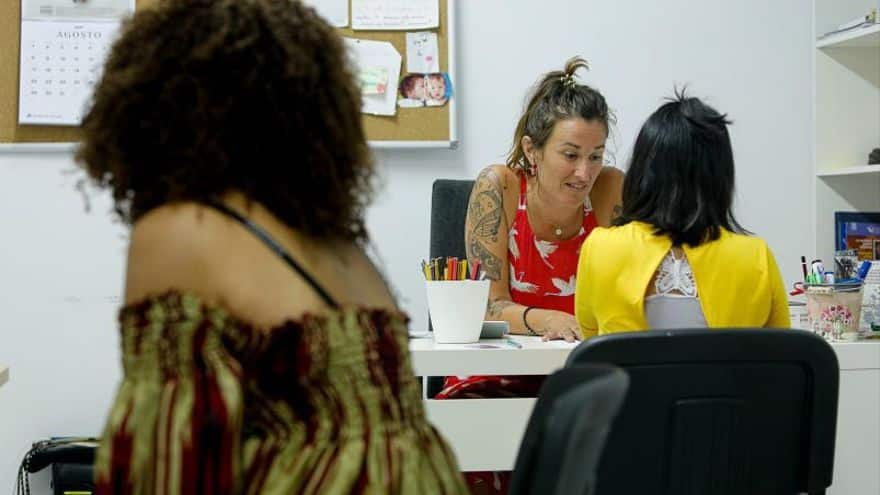“I have met women who pay 700 euros for a shared bed. For warm beds. Rented to three different people. Who live in tool sheds. Not one. Not two. Not three. There are many”, says Rocío López García sadly, coordinator of women and violence projects of Metges del Món on Ibiza and Formentera. López does not understand how there is no response to these extreme situations on Ibiza.
López has seen seven people living together in the same room. And, just a few days ago, a Colombian woman and her adult daughter with Down syndrome sleeping on the floor of a prostitution apartment. “Five days,” she stresses about the situation of these two women who she gives as an example of the dead-end labyrinth in which most of the time many migrants newly arrived on the island find themselves. They have gone to the municipal social services, to the Consell, and before finding Rocío and Metges del Món they spent five nights in that apartment. A woman in prostitution was the only one who offered them a place to sleep those first days. Not a very safe space. Especially for a person “with the innocence and vulnerability” of a young girl with Down syndrome.
Disappointment and helplessness for the women
“I feel disappointment and helplessness…. This is an island with resources, there is money, but they are not well distributed. It can’t continue to be known that there are people who are here in these situations and nothing is done,” says López, who started at the organization as a volunteer and continued as a social intervention technician before becoming coordinator of projects with women and violence. Seeing this makes her feel indignant and angry. And she finds it hard to understand that the rest of the island’s society does not feel the same way she does, that she is beginning to think she has reached her limit.
It is common to come across refusals in various social resources. And that is what has also happened with this last case. “The only resource the Counsell has is the Oficina de la Dona, which is wonderful and works very well, but they do not have the profile,” says the coordinator of Metges del Món, which has even resorted to administrations and entities outside the island. With the same result: “They tell you that if it were a mother with a minor daughter? Or two women yes, but when you comment that one of them has Down syndrome, then no, because she should seek another resource. What a compartmentalization! They are people! In this sense, she also recounts what families who have recently arrived on the island have experienced: “In the municipal reception center they only accept adults, so the minors have to be taken elsewhere. How can we break people up in this way?”. Lopez asks the administrations to create services that truly serve to help new arrivals.
Lopez says that they are not paying “the attention they should” to the migratory movement that the Pitiusas have recently been recieving: “The amount of boats we receive and the treatment given to these people is unimaginable. It’s the level of inaction on the part of the administrations when it comes to doing something with these people, but also the little social awareness and how the newly arrived people, migrants are treated from all areas”. The expert also points out that a large part of this migratory movement are women and asks to focus on the reason why they decide to leave everything behind: “Behind this is the feminization of poverty, which is very brutal”. This, she points out, makes many of them either leave their countries as victims of trafficking networks or through mafias to whom they must pay a debt that, once here, alone and without documentation, ends up leading them into prostitution.
For the full article, please visit Diario de Ibiza website here.

